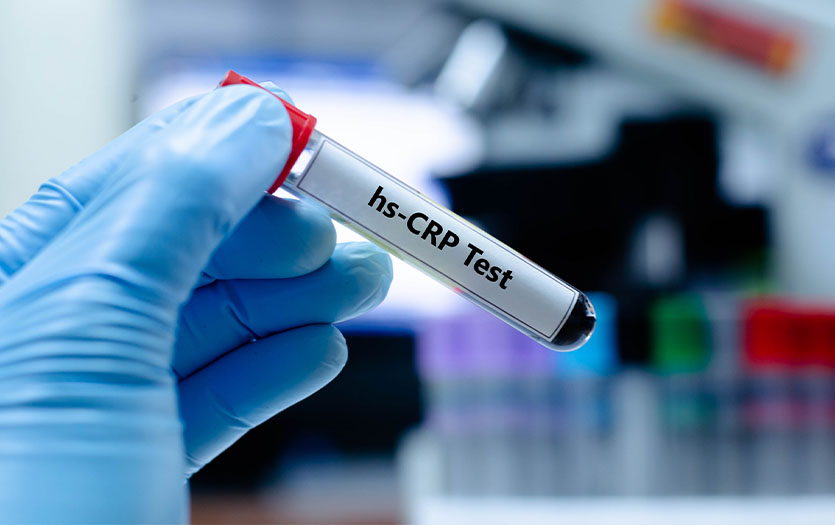
This post was written by Ann Vick, MT(ASCP), MLS(ASCP), laboratory chemistry specialist, Parkview Health.
When it comes to monitoring your heart health, the ultrasensitive c-reactive protein(hs-CRP) test can be a helpful tool for predicting heart disease. Heart disease is a complex medical condition encompassing many types of cardiac problems, and every patient's situation is unique, requiring tailored screening approaches. Below, we’ll review the hs-CRP test, who should consider it, and how to prepare for testing and interpret the results.
Understanding the hs-CRP test
C-reactive protein (CRP) is a protein made by the liver. When inflammation occurs, CRP levels rise as the body's natural reaction to fight off the underlying issue. The standard CRP test measures a blood sample's overall C-reactive protein level to detect inflammation. The ultrasensitive c-reactive protein (hs-CRP) test exhibits greater sensitivity than the standard test. It can detect smaller increases in C-reactive protein, which helps predict the risk of developing coronary artery disease (CAD).
Coronary artery disease occurs when the arteries become narrow and rigid due to a buildup of plaque deposits. These deposits restrict blood flow, hindering the body's ability to carry oxygen and nutrients to the heart. Elevated levels of inflammation are associated with an increased risk of heart attacks. Individuals who have experienced one heart attack are more likely to have another if their hs-CRP level is high, but their risk goes down when their hs-CRP level is within the typical range. Detecting these subtler increases in CRP can provide early warnings about potential heart disease and allow for more timely intervention.
Who should consider the hs-CRP test?
The hs-CRP test is not recommended for everyone. A primary care provider may use the standard test to identify health concerns like infections, injuries and some chronic conditions that may also cause inflammation within the body. Inflammation occurring in places other than the heart may also cause an increased hs-CRP result, but it does not necessarily mean you are at increased risk of a heart attack.
The hs-CRP test is most useful for individuals who have a 10-20% risk of heart attack within ten years. Consult your primary care provider to discuss your risk factors. They can review your entire medical history to help determine if this test is appropriate for you.
Preparation
Various factors can influence your hs-CRP test. It's important to follow your provider's instructions to ensure accurate results. Activities that cause physical stress, such as a long run or intense weight training, can temporarily increase your hs-CRP levels. Your healthcare provider may ask you to avoid these kinds of activities before having blood collected for the test. Certain medications and supplements may also affect your CRP levels. Always inform your healthcare provider about all medicines you are taking, including non-prescription drugs, to ensure an accurate interpretation of your results.
The blood sample collected for hs-CRP testing does not require fasting. However, if other tests, such as a lipid profile, are being collected simultaneously, you may need to avoid food or drink for 10-12 hours. Fasting will not change your hs-CRP level.
Interpreting your results
Results less than 3.0 mg/L are associated with a lower risk of heart disease. Results greater than or equal to 3.0 mg/L are associated with a higher risk of heart disease. An elevated hs-CRP value doesn't guarantee that you will develop heart disease or have a heart attack. Likewise, a low hs-CRP value doesn't mean that you will never develop heart disease or have a heart attack. The hs-CRP is just one test that can contribute to determining your future risk for developing the disease and should be considered alongside other clinical findings and risk factors. Always consult your healthcare provider to fully understand lab results and help you decide the best course of action for your health. Be sure to share any new health history or recent symptoms as well.
Final insights
Parkview Health Laboratories offers Direct Access Testing (DAT) for the ultrasensitive C-reactive protein test to patients without requiring a physician's order or scheduling an appointment. With multiple convenient locations, getting tested is simple and efficient. Visit a DAT location near you and take proactive steps to monitor your health.



